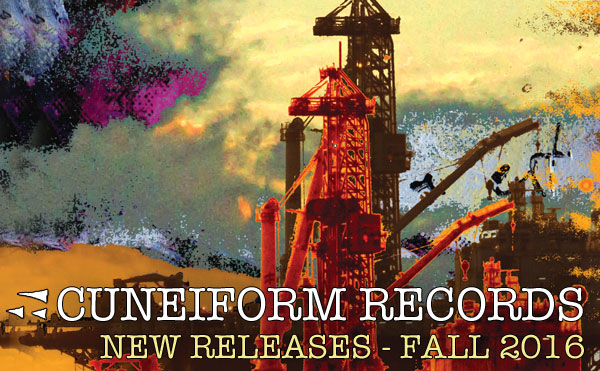 CUNEIFORM RECORDS' FALL 2016 RELEASES: RICHARD PINHAS & BARRY CLEVELAND MU RICHARD PINHAS, YOSHIDA TATSUYA & MASAMI AKITA PROCESS AND REALITY SÃO PAULO UNDERGROUND CANTOS INVISIVIES WADADA LEO SMITH AMERICA’S NATIONAL PARKS ___
The wall between the "political" and "entertainment" worlds has fallen in the USA, and we are under siege by the most surreal presidential election campaign in history. 2016 is a distressing reality to process: national politics or TV reality show? We invite you to focus attention instead on higher ground: on music, some (like Process and Reality) politically infused.
Cuneiform Records has an extra-extraordinary batch of new releases for Fall 2016: 4 new albums by a pantheon of avant-garde icons and polymaths, key figures in the international avant garde of rock, jazz, and creative music. We are honored to work again with longtime Cuneiform collaborators Wadada Leo Smith, Rob Mazurek (here as part of São Paulo Underground) and Richard Pinhas (in collaborations with Merzbow, Yoshida Tatsuya and Barry Cleveland & more). You probably already know at least one of these artists; we're including these mini-intros to encourage you to get to know them all: WADADA LEO SMITH Celebrated as a “National Treasure” on the cover of DownBeat, America’s most revered jazz magazine, American composer/ improvisor/ trumpeter Wadada Leo Smith is a titan among the international avant-garde. He has been expanding musical boundaries since the 1960s, formulating new musical theories, inventing a system for scoring music called Ankhrasmation, and making Creative music. Unrelenting in creative energy and intensity, within the past decade Smith has released numerous impressive albums and performed at countless international festivals and high profile venues. Smith's prior Cuneiform release was Ten Freedom Summers, a 4-disc set dedicated to the American Civil Rights movement that received Metacritic's highest all-time score and was one of 3 Finalists for 2013's Pulitzer Prize in Music.
2016 - Smith celebrates his 75th birthday in December - is proving to be a standout year: his duo album with pianist Vijay Iyer on ECM is receiving wide acclaim (Pitchfork, Wall Street Journal); his Ankrasmation scores are being exhibited in art museums; he receives the Doris Duke Artist Award and the Hammer Museum’s Mohn Award for Career Achievement; DownBeat spotlights him for its November 2016 cover feature; and he releases America’s National Parks on Cuneiform. Smith's America's National Parks comes at a critical time: 2016 is the 100th Anniversary of the National Park Service, the Interior Department bureau that oversees national parks, and the year of a Presidential Election in which one outcome may endanger the future of public lands.
[Want to know more about WLS? Read a recent INTERVIEW (2016) on THE BOMB] RICHARD PINHAS: Ceaselessly innovative, French guitarist, electronic musician and philosophy PhD Richard Pinhas is a legendary figure on the international experimental rock and electronic music scenes, influencing multiple generations of musicians and entrancing young fans discovering his music today. He’s been tearing down barricades literal and figurative since the 1970s, between both musical and scholarly disciplines: his band Heldon fused analogue electronics and rock guitar, sci fi and philosophy, to create electronic rock music rivalling Tangerine Dream's. He later wrote books on philosophy and released solo and collaborative albums that rivalled the radical creations of his youth. In a relentless creative surge, Pinhas in recent decades has experimented with guitar and digital electronics, fused concepts from philosophy, sci fi, and political theory, and collaborated with key figures from the international Noise and experimental music scenes to release a series of acclaimed albums on Cuneiform that serve as politically charged, instrumental soundtracks for the 21st century post-industrial age.
For Fall 2016, this global sonic experimenter has simultaneously released two new, startlingly different albums on Cuneiform, recorded on opposite side of the Pacific Ocean with two vastly different yet equally stellar groups of collaborators:
PINHAS / MASAMI AKITA (MERZBOW) / YOSHIDA TATSUYA PROCESS & REALITY
Recording in Tokyo, Pinhas and fellow experimental music icons Akita & Tatsuya - his long-time collaborators from the Japanese Noise scene - create a soundtrack for the industrial era's final collapse. RICHARD PINHAS & BARRY CLEVELAND [featuring MICHAEL MANRING and CELSO ALBERTI] MU Pinhas' first collaboration with guitarist and studio wizard Cleveland and two other superb West Coast musicians results in a mesmerizing treasure of psych/ ambient / world music.
[Want to know about RP? Read a recent INTERVIEW (2015) on RED BULL]
ROB MAZUREK / SAO PAULO UNDERGROUND Musically active since his arrival on Chicago’s jazz scene in the 1980s, composer, improvisor, cornet player and visual artist Rob Mazurek is a major creative force on the avant jazz, experimental music and 21st C. world music scenes. A powerhouse of creative activity, he leads numerous ensembles (Chicago Underground Duo, Exploding Star Orchestra, São Paulo Underground & more) records and releases numerous albums, and tours internationally on a frequent basis, performing both solo and in various groupings. In addition, he makes visual art in various media. By interweaving genres (jazz, electronic, rock, improvised), sounds (acoustic and electronic, instruments and spoken word), concepts (sci fi, psychedelia, socio-political), and continents (North and South America), Mazurek's music is opening the trans-global doors to avant music’s future. Following his performance at 2016’s Guelph Jazz Fest, the Festival’s curator/founder Ajay Heble said “I think it was the New York Times that said anyone that is interested in the future of jazz cannot afford to ignore Rob Mazurek. I think he has his finger on the pulse of some of the more exciting developments in the music whether it’s combining jazz with Brazilian music or bringing in electronics.” The collaborative trio São Paulo Underground, formed at the end of his 8 year Brazilian sojourn, is one of Mazurek's key groups, featuring his long-time Brazilian collaborators, the experimental musicians Mauricio Takara and Guilherme Granado. Joined on Cantos Invisíveis, their 5th São Paulo Underground release, by Swiss/Brazilian musician Thomas Rohrer, they create a remarkable album that feels like the soundtrack for the global future, imbedded lovingly with memories and traditions past. [Want to know about RM? Read a recent INTERVIEW (2015) on POPMATTERS] CONCERTS Wadada Leo Smith, Richard Pinhas, and Rob Mazurek / São Paulo Underground are touring widely in the days and months to come. See them perform live if at all possible!! Visit Cuneiform's Tour Page for more information. Best regards The Cuneiform Records Team
|
-----
CUNEIFORM'S NEW RELEASES
FALL 2016
Richard Pinhas and Barry Cleveland
Explore Zen and the Art of Improvisation on Mu, a Startlingly Strange and Beautiful Quartet Session with Bass Innovator Michael Manring and Brazilian Drum Maestro Celso Alberti
Richard Pinhas & Barry Cleveland [Featuring: Michael Manring & Celso Alberti] Mu  STREAM/SHARE: "Zen/Unzen" [excerpt] STREAM/SHARE: "Zen/Unzen" [excerpt]stream: @SoundCloud / @Bandcamp / @YouTube Cat. #: Rune 426, Format: CD / Digital Download Genre: Avant-Progressive / Art Rock / Experimental / Fourth World / Psychedelic Release Date: September 16, 2016 One day a troubled monk approached Joshu, a renowned Chinese Zen master, intending to ask him for guidance. A dog walked by and the monk asked Joshu, "Has that dog a Buddha Nature or not?" The monk had barely completed his question when Joshu shouted: "Mu!" ‘Mu’ is often translated as “nothingness,” but as the response in Zen’s most famous koan, the gesture speaks to a truth deeper than rational dualistic thinking can obtain—therefore also resonating with the creative mindset accompanying the purest forms of musical improvisation. The music created by French guitar iconoclast and electronic music pioneer Richard Pinhas and insistently inventive San Francisco Bay Area guitarist Barry Cleveland on Mu originated in just such a way, arising seemingly from “nothingness.” The two had contemplated performing as well as recording together for several years before their stars finally aligned during Pinhas’ 2013 North American Tour. The guitarists played several Bay Area shows as a duo and invited two other musicians to join them for a studio session lasting less than four hours. Mu, the remarkable document stemming from this brief yet profoundly potent studio encounter, is slated for release on Cuneiform Records on Sept. 16, 2016. Unfettered by genre conventions, Mu is a mesmerizing combination of entirely improvised music and Cleveland’s post-production compositional development. The four long pieces unfurl as a confluence of overlapping musical currents informed by art rock, ambient, electronic, avant-garde jazz, and various “world” music inflections. Joined by two longtime Cleveland collaborators—electric bass innovator Michael Manring and Brazilian-born drum master Celso Alberti—these expansive and timeless soundscapes feel unlike anything created before them. “I’ve worked with Michael for years and he and Celso were both featured on my previous album, Hologramatron, as well as in the band of the same name,” Cleveland explains. “Hologramatron had opened for Richard a couple of times here in California, so he was familiar with Michael and Celso’s playing and readily agreed that we should record together as a quartet.” Pinhas’ distinctive musical aesthetic is facilitated by his Metatronic live-looping and effects system that enables him to create an astonishing variety of tones and textures and layer them into continually changing stream-of-consciousness soundscapes. His approach on Mu was especially dynamic. “Besides opening up fresh sonic horizons himself, Richard did an impressive job of responding to the rapid shifts in tempo, tonality, and intensity of the quartet, which is far from easy when using a looping system such as his,” explains Cleveland. “His performance on ‘I Wish I Could Talk In Technicolor,’ in particular, may be the most dynamic and nuanced I’ve heard from him yet.” Cleveland’s aesthetic is equally sui generis. In addition to playing guitar in the conventional manner he plays with a bow, a bowhammer, an EBow, and other devices, as well as using sophisticated electronics and looping to access intriguing new aural realms. On Mu, he also played Moog Guitar, sitar guitar, Vocalizer 1000 woodwind synth, M-Tron, zither, kalimba, gong, and incidental percussion. “Hyperbassist” Michael Manring’s mind-blowing virtuosity is equaled only by the richness of feeling expressed in his playing. He and drummer/percussionist Celso Alberti, a master of multiple rhythmic traditions, share a near-psychic connection that enlivens their truly uncanny interactions. Following their recording session, Cleveland spent months “overdubbing different instruments, including the remarkable Moog Guitar, and arranging, processing, and mixing the core tracks into complete musical statements. Long stretches of the improvised material were used in their entirety (“I Wish I Could Talk In Technicolor” and “Zen/Unzen”), which helps explain the music’s cohesive flow. The final touch was composing ‘Forgotten Man’ around an extended guitar-synth track by Richard, including programming the percussion parts.” “My production and mixing fingerprints are all over Mu, and may even be evident to those familiar with my other recordings,” Cleveland says. “But the essential character of the music is the result of four unique musicians improvising together on a particular day, at a particular time, and the creative possibilities and energies available to them in that moment.” It’s the kind of confidently interactive invention that can only take place with deeply connected musicians. While not originally intended as a suite, Mu is effectively an audio odyssey that flows naturally from beginning to end. Mu opens with the darkly cinematic “Forgotten Man.” It’s the only track without Manring and Alberti, but Cleveland’s programmed percussion keeps the mysterious gentleman on the move, wending his way across churning synthesizer landscapes driven by the polyrhythmic pulse of tribal drumming and ever-shifting permutations of the soaring melody. The album’s 26-minute centerpiece, “I Wish I Could Talk In Technicolor,” seduces the listener into an enigmatic and at times unsettling world of strange new sounds and tonal colorations that are in turns intimate and orchestral in scope. One moment an alluring soundscape propelled by hypnotic kalimba rhythms and Pinhas’ pulsating guitar loops; the next exotic atmospherics hovering atop Manring’s elastic bass figures and Alberti’s rapid-fire electronic kit work; the next full immersion in trippy textures infused with sitar guitar; and the next a spacy art-rock excursion featuring Pinhas’ multidimensional droning and Cleveland’s bowed guitar layering, dynamic looping, and fuzz-drenched soloing. “Zen/Unzen” uncoils gradually like a sonic Slinky, continually generating fresh kinetic waves. An evocative Pinhas’ guitar loop becomes suffused with coruscating Moog Guitar textures, before Manring and Alberti emerge into the foreground and establish an Afro-tinged groove with uncommon power and authority. Jon Hassell-inspired melodies executed on a toy woodwind synth and jazzy faux trumpet MIDI guitar lines push the piece into world-fusion territory, while runaway Echoplex sounds nod in the direction of electric Miles. The gorgeous closer, “Parting Waves,” blends moody loops and brooding EBow bass with cascading 12-string guitar clusters and a majestic yet mournful melody that swells and then subsides before gradually merging into the sound of breaking waves punctuated by the cries of distant gulls. In bringing together this singular quartet, Cleveland and Pinhas take another bold step with Mu. Given their long histories of innovation and experimentation it shouldn’t be surprising to find them venturing into the unknown. But there’s still something inspiring about witnessing veteran artists willing to follow a thread of inspiration into the void, only to emerge with new revelations. “In many ways,” says Cleveland, “this album represents the culmination of concepts and techniques I’ve been developing my entire life.” Mu, the first Richard Pinhas / Barry Cleveland collaboration to be released by Cuneiform, should appeal to fans of such artists as Jon Hassell, Arve Henriksen, Nils Petter Molvær, Bill Laswell, David Torn, Brian Eno, David Sylvian, and David Bowie PROMOTIONAL TRACK // If you'd like to share music from this release, please feel free to use the following track:  "Zen/Unzen" [excerpt]: @SoundCloud / @Bandcamp / @YouTube "Zen/Unzen" [excerpt]: @SoundCloud / @Bandcamp / @YouTubePURCHASE LINKS // ITUNES - AMAZON - BANDCAMP - WAYSIDE MUSIC ARTIST WEB SITES // www.richard-pinhas.com - www.barrycleveland.com - www.cuneiformrecords.com |
Avant-Rock Icons Richard Pinhas, Tatsuya Yoshida and Merzbow Form a French-Japanese Noise Summit on Process and Reality, a Richly Textured, Politically Charged Soundtrack for the Collapse of Modern Society
Richard Pinhas / Tatsuya Yoshida / Masami Akita [Merzbow] Process and Reality  STREAM/SHARE: "TVJ 33 (Core Track)" [excerpt] STREAM/SHARE: "TVJ 33 (Core Track)" [excerpt]stream: @SoundCloud / @Bandcamp / @YouTube Cat. #: Rune 432, Format: CD / Digital Download Genre: Rock / Electronic / Experimental / Noise Release Date: September 16, 2016 Three founding fathers of experimental music join forces to conjure a serenade for a society on the verge of collapse on Process and Reality, an hourlong whirlwind of pessimistic prophecy transformed into a heady monolith of sound. Boundary-stretching guitarist Richard Pinhas, founder of the influential French electronic-rock band Heldon, teams with two icons of the Japanese avant-garde – drummer Tatsuya Yoshida, mastermind of warped-prog legends Ruins, and Masami Akita, a.k.a. noise guru Merzbow – to summon a brutally honest, politically potent, sonically tumultuous reflection of the last gasps of the industrial age. Process and Reality, due out September 16, 2016 on Cuneiform Records, marks the first recorded convergence of these three avant-rock giants, though Pinhas has recorded with both Yoshida and Merzbow in the past and all three have toured extensively together in Japan (often joined by the equally iconic guitarist Keiji Haino). The album, recorded in Tokyo during a recent high-profile tour, captures the fevered intensity and violently textured depth of the trio’s collaborative improvisations. Simultaneous with his studies on the guitar, Pinhas earned a PhD in philosophy from the Sorbonne, where he studied with the late French philosopher Gilles Deleuze, and his aggressive, combustible music has always been honed to a keen edge by its philosophical bent. Process and Reality takes its name from an influential 1929 book by English mathematician and philosopher Alfred North Whitehead, which posits reality as a continual process of becoming. That’s an apt summation of the music made by Pinhas, Yoshida and Akita, which seethes and roils in a constant state of both turbulent flux and visceral realization. The guitarist says of his collaborators, “They explore 100% of their possibility. We have the same kind of spirit.” That spirit seems to blanch in the face of the modern age. Though he doesn’t regard Process and Reality as the still-to-come third part of his “Devolution Trilogy,” which began with 2014’s Desolation Row and continued with 2014’s Welcome… In the Void, a duo collaboration with Yoshida, Pinhas obviously feels that the music created on the new recording expresses a similarly foreboding worldview. The album arrives in the shadow of a series of tragic terrorist attacks in the guitarist’s native France, in the midst of an unprecedentedly ugly American presidential election, and in the aftermath of the Brexit vote that sent shockwaves across Europe, with no end in sight to the crisis in the Middle East and ensuing refugee crisis. The global forecast on the album’s 2016 release is riddled with dark clouds, as an overwhelming mood of political turmoil roils the global consciousness. While many of those world events were still in the future or in a more nascent stage when Process and Reality was recorded, they fulfill Pinhas’ bleak vision of our fates. In what he calls “the Industrial Age Final Times,” the economically distressed Detroit is the “city of the future” and civilization will be transitioning from wars over oil and gas to battles for water, the very stuff of life itself. In his darkly clouded crystal ball, ecological disaster, global terrorism, a sweeping wave of Fascism in Europe and increasing technological reliance all forebode decades of “very bad things happening.” While those subjects weren’t expressly discussed during the making of the album, Pinhas says they can’t help but have made an impact on it. “A musician is doing what he’s doing when he’s doing it,” he explains. “All your thoughts, everything you do is the result of the historical time where you’re living. The mood is changing and we’re heading toward something very chaotic. The music I’ve been doing over the last several years is trying to be a reflection of this chaos and void that we’re coming to.” If all of this sounds more like the dystopian vision of a science fiction writer rather than that of a ground-breaking experimental musician, that’s no accident. Pinhas has enjoyed intellectual friendships with a number of science fiction writers tracing back decades, including Michael Moorcock, Philip K. Dick, Norman Spinrad and the late Maurice Dantec, with whom Pinhas formed the project Schizotrope. He sees his own fatalistic premonitions as akin to their writings. “Normally musicians and writers have a premonition of reality before it happens,” Pinhas explains. “That’s why I’m very involved with science fiction writers. They have an insight or vision of what will become our near future. If you read the books of very good science fiction writers in the ‘70s, they describe the society where we’re living now.” The outlook embodied by the music on Process and Reality is stunningly pictured in cover art worthy of a cyberpunk novel, rendering an oil tanker as a surrogate for the decaying post-industrial future. It was created by Patrick Jelin, the gifted French designer also responsible for the covers for classic Heldon albums Interface (1977) and Stand By (1979), as well as Pinhas’1979 solo effort Iceland. Despite the dark context, the very process that the title Process and Reality hints at is one of transforming chaotic reality into a gorgeous, densely layered and richly textured monolith of beauty, one radiant with the breathtaking colors of a purple-tinged sky preceding a storm. The music swells into being on the first track, “TVJ 00 (Intro)” – not much for elaborate titles, Pinhas assigns his pieces a letter/number combo a la the Köchel numbers associated with Mozart’s compositions – as Pinhas and Akita create a dizzying maelstrom of guitar and electronics noise over Yoshida’s pummeling drum assault, a torrent of layered noise that won’t seem unfamiliar to Merzbow aficionados. The centerpiece of the album is the 35+ minute second track, “TVJ 33 (Core track),” on which Yoshida establishes a lurching groove under the gradually swelling colors that bloom from Pinhas’ lush guitar blooms and Akita’s insistently buzzing electronics. The sound builds to a glimmering intensity, both punishing and blissful, which the trio maintains for nearly 20 minutes. Finally the barrage disperses, leaving behind rippling echoes of metallic tones occasionally disrupted by blasts of digital noise, unexpectedly revealing the bandmates’ Fripp and Eno influences. The respite doesn’t last long, however, as a harsh metal-on-metal industrial soundscape overwhelms the calm. “TVJ 66 (Non-Sens)” follows with crushing waves of sound, an aural whirlwind stirred by Merzbow’s piercing gales. The album concludes with the relatively serene “TVJ 77 (Quiet Final),” a stop-start mind-bender that delves into space-rock psychedelics. Pinhas also sees the album as a celebration of his cherished friendship with these Japanese artists, with whom he’s convened on regular tours of Japan since 2007. “Japan is the best scene in the world,” he asserts, and while he foresees a radical change in his sound approaching in 2017, he continues that, “Always I will work with my forever friends.” Amidst the darkening global politics, Pinhas finds solace in the friendship and communion he shares with Yoshida and Akita, artists with whom he shares a deep and crucial bond if not a common language. If the music on Process and Reality is a response to a volatile age, it stems from deeply-felt relationships that offer inspirational shelter from that gathering storm. Process and Reality arrives well into Richard Pinhas’ fifth decade as a recording artist and constant innovator. Recognized as one of France's major experimental musicians and a pivotal figure in the international development of electronic rock music, Pinhas' stature in France is analogous to Tangerine Dream's in Germany: the father figure of an entire musical movement. Inspired by a wide range of music from classic ‘60s rock to ‘70s jazz fusion and progressive rock, Pinhas recorded seven albums with Heldon between 1974 and 1979 before disbanding the project to focus on his work with a wide range of collaborators. Throughout his long career he’s constantly evolved, remaining on the bleeding edge of multiple genres, while younger generations continue to catch up and rediscover his work, whether sampling it in new music or simply revealing its profound influence. He’s reissued his early work on Cuneiform as well as releasing a steady stream of new music, while also penning books on philosophy and his mentor, Deleuze. His collaborators on the album are two of the most revered and influential musicians of the Japanese experimental music scene. Since 1985, Tatsuya Yoshida has led the avant-prog group Ruins, a power duo (usually) with its own invented language and an equally singular sound. Yoshida has also led several other groups, including Zubi Zuva, Koenji Hyakkei and Korekyojinn, and released a number of solo projects. He spent time as the drummer of the influential prog group YBO2 alongside guitarist KK Null, whom Yoshida currently joins in the latest incarnation of the longrunning noise-rock band Zeni Geva. Yoshida has worked with many of the most prominent figures in the avant-garde, including Fred Frith, John Zorn, Derek Bailey, Bill Laswell, Yoshihide Otomo, Acid Mothers Temple and countless others. (magaibutsu.com) Recording as Merzbow, the prolific Masami Akita has released more than 400 recordings of ear-shattering noise music, becoming one of the foremost icons of the music. He’s previously released three duo albums with Pinhas on Cuneiform: Keio Line, Rhizome, and Paris 2008. Merzbow’s work draws inspiration from a number of divergent streams, including early electronic music, free jazz and fusion, heavy metal and prog, to extra-musical sources including Dada, fetish and BDSM culture, visual arts, Butoh dance and surrealism. In recent decades he’s adhered to a vegan and straight edge lifestyle and been strongly committed to the causes of animal rights and environmentalism. (merzbow.net) PROMOTIONAL TRACK // If you'd like to share music from this release, please feel free to use the following track:  "TVJ 33 (Core Track)" [excerpt]: @SoundCloud / @Bandcamp / @YouTube "TVJ 33 (Core Track)" [excerpt]: @SoundCloud / @Bandcamp / @YouTubePURCHASE LINKS // ITUNES - AMAZON - BANDCAMP - WAYSIDE MUSIC ARTIST WEB SITES // www.richard-pinhas.com - www.magaibutsu.com - www.merzbow.net - www.cuneiformrecords.com |
// RICHARD PINHAS - TOUR DATES: 2016-2017 //
| Oct. 6 | USA | Richard Pinhas & Wume | Gallacom Intl. Cleveland, OH more info: wumeworld@gmail.com |
| Oct. 7 | USA | Richard Pinhas & Wume | Marble Bar 1501 Holden St, Detroit, MI 48208 [FB event] |
| Oct. 8 | USA | Richard Pinhas & Wume | Elastic Arts 3429 W Diversey Ave #208, Chicago, IL 60647 http://elasticarts.org [FB event] |
| Oct. 10 | USA | Richard Pinhas & Wume | American Legion 3204 Gallatin Pike, Nashville, TN 37216 http://www.legion.org [FB event] |
| Oct. 11 | USA | Richard Pinhas & Wume | Pilot Light 106 East Jackson Ave, Knoxville, TN http://www.thepilotlight.com/ |
| Oct. 12 | USA | Richard Pinhas & Wume | Nightlight 405 1/2 West Rosemary St, Chapel Hill, NC 27516 phone (919-960-6101) http://www.nightlightclub.com [FB event] |
| Oct. 13 | USA | Richard Pinhas & Wume | Strange Matter 929 W Grace St, Richmond, VA 23220 http://www.strangematterrva.com [FB event] |
| Oct. 14 | USA | Richard Pinhas & Wume | Metro Gallery 1700 N Charles St, Baltimore, MD 21201 http://www.themetrogallery.net [FB event] |
| Oct. 15 | USA | Richard Pinhas & Wume | Comet Ping-Pong 5037 Connecticut Ave NW, Washington, DC 20008 http://www.cometpingpong.com [FB event] |
| Oct. 20 | USA | Richard Pinhas | Zeitgeist Multi-Disciplinary Arts Center 1618 Oretha Castle Haley Blvd, New Orleans, LA 70113 http://www.zeitgeistnola.org $20 [FB event] |
| Oct. 21 | USA | Richard Pinhas |
14 Pews 800 Aurora St, Houston, TX; phone: (718) 389-0854 http://www.parkchurchcoop.org/ |
| Oct. 22 | USA | Richard Pinhas |
Farewell Books 913 East Cesar Chavez St, Austin TX 78702 phone: (512) 473-2665 http://www.farewellbookstore.com/ https://www.facebook.com/FarewellBooks/ |
| Nov. 3 | JP | Richard Pinhas & Yoshida Tatsuya |
Syuyukan Omihachiman Shiga Sakederik space Syuyukan Yubinbango 523-0862, Shiga Prefecture, Omihachiman, Suwaichonaka 21 http://www.shuyukan.com/index.html |
| Nov. 4 | JP | Richard Pinhas & Yoshida Tatsuya w/ Seiichi Yamamoto |
Club Metro Japan, 606-8396, Kyoto Kyoto, sakyo-Ku, Kawabata log town under http://www.metro.ne.jp |
| Nov. 5 | JP | Richard Pinhas & Yoshida Tatsuya | Txalaparta 770-0915, Japan Tokushima Prefecture, Tokushima Tomita-Cho 2-18 B1 http://bartxalaparta.jimdo.com |
| Nov. 6 | JP | Richard Pinhas & Yoshida Tatsuya | Helluva Lounge 650-0011, Japan, 3--1 - 18 under the Yamate Dori Chuo-ku, Kobe-Shi, Hyogo, Japan http://helluva.jp |
| Nov. 7 | JP | Richard Pinhas & Yoshida Tatsuya w/ Vampillia | Conpass 542-0083 Osaka Prefecture, Osaka, Chuo-ku, East heart Shinsaibashi 1-Chome 12-20 http://www.conpass.jp |
| Nov. 8 | JP | Richard Pinhas & Yoshida Tatsuya w/ Ryoko Ono | Tokuzo 8, novel imaike 1-Chome-6 - 12 Uchiyama, Chikusa-Ku, Nagoya-Shi, Aichi 464-0075 http://www.tokuzo.com |
| Nov. 9 | JP | Richard Pinhas & Yoshida Tatsuya w/ | Up-Tight Kirchherr |
| Nov. 10 | JP | Richard Pinhas & Yoshida Tatsuya w/ Atomic Farm |
So-gen 10th Shizouka SOGEN 420-0032, 2 Chome-5-7 Ryogaecho, Aoi Ward, Shizuoka, Shizuoka Prefecture 420-0032 http://sougen0228.wixsite.com/live https://twitter.com/sougen0228 |
| Nov. 11 | JP | Richard Pinhas & Yoshida Tatsuya |
Sakuraza Cafe Yubinbango 400-0032 Kofu, Yamanashi Prefecture center 1-1-7 Japan 1-1-7 Chuo koufushi, Yamanashi City Japan http://www.sakuraza.jp/ https://twitter.com/sakurazakofu |
| Nov. 12 | JP | Richard Pinhas |
Disk Union Diskunion Shinjuko Progressive Rock Store (3F) Yamada Bldg. 3F, 3-31-4 Shinjuku, Shinjuku-ku, Tokyo 160-0022 http://diskunion.net/shop/ct/shinjuku_progre |
| Nov. 13 | JP | Richard Pinhas & Yoshida Tatsuya | Showboat Oak Hill Koenji B1F, 3-17-2 Koenji Kita Tokyo Suginami high yen North Temple 3-17-2 B1 http://www.showboat1993.com/ https://twitter.com/ShowBoat_1993 |
-----
Brazilian/American Trio São Paulo Underground
Expands Psycho-Tropicalia into New Dimensions on Cantos Invisíveis a Global Tapestry that Transcends Place & Time
São Paulo Underground Cantos Invisíveis  STREAM/SHARE: "Olhaluai" STREAM/SHARE: "Olhaluai"stream: @SoundCloud / @Bandcamp / @YouTube Cat. #: Rune 423, Format: CD / Digital Download Genre: Jazz / Tropicalia / Electronic / World / Psychedelic / Post-Jazz Release Date: October 14, 2016 “A visionary jazz-rock trio.” - The New York Times “Limitless in its possibilities.” - Rolling Stone “A modern approach to Brazil's Tropicália, that takes into account advances in sound manipulation and engineering. It is street music from the Brazilian subterranean avant-garde and it is confusingly wonderful.” - All About Jazz “The Post-Don Cherry melodic splendor of Chicago cornetist Rob Mazurek has never been clearer, and it finds a simpatico home amid the polyrhythmic chaos forged by his Brazilian cohorts. This high-energy romp takes the sting out of the term fusion in the best possible way.” - DownBeat Cantos Invisíveis is a wondrous album, a startling slab of 21st century trans-global music that mesmerizes, exhilarates and transports the listener to surreal dreamlands astride the equator. Never before has the fearless post-jazz, trans-continental trio São Paulo Underground sounded more confident than here on their fifth album and third release for Cuneiform. Weaving together a borderless electro-acoustic tapestry of North and South American, African and Asian, traditional folk and modern jazz, rock and electronica, the trio create music at once intimate and universal. On Cantos Invisíveis, nine tracks celebrate humanity by evoking lost haunts, enduring love, and the sheer delirious joy of making music together. São Paulo Underground fully manifests its expansive vision of a universal global music, one that blurs edges, transcends genres, defies national and temporal borders, and embraces humankind in its myriad physical and spiritual dimensions. Featuring three multi-instrumentalists, São Paulo Underground is the creation of Chicago-reared polymath Rob Mazurek (cornet, Mellotron, modular synthesizer, Moog Paraphonic, OP-1, percussion and voice) and two Brazilian masters of modern psycho-Tropicalia -- Mauricio Takara (drums, cavaquinho, electronics, Moog Werkstatt, percussion and voice) and Guilherme Granado (keyboards, synthesizers, sampler, percussion and voice). They’re joined on several tracks by Swiss-born, São Paulo resident Thomas Rohrer (rabeca, flutes, soprano saxophone, electronics, percussion and voice), who made a memorable contribution to Mazurek’s Black Cube SP on the transcendent 2014 Cuneiform release Return the Tides: Ascension Suite and Holy Ghost. Together, these singular and wildly imaginative sonic explorers create music unlike any other ensemble. In many ways the music on Cantos Invisíveis is a celebration of camaraderie and the spaces that allow love and friendship to unfurl. Alchemical aural conspirators for over a decade, the group has developed its own approach to structure, with slippery forms, unabashedly beautiful melodies and lapidary textures laced with disquieting electronica beats and stutter-stepping improvisation. Rather than evoke a particular time and place, the music inhabits multiple planes simultaneously as “a projection of sound that celebrates as well as mourns past, present and future times,” Mazurek says. “The vocal quality of this particular music shouts and hollers for love and compassion, the joy and sorrows of life. It’s a street parade for everybody.” In the transcendent spirit of the Second Line, São Paulo Underground summons a joyful noise for all mankind. The experience of listening to Cantos Invisíveis often feels like stepping through the fourth wall, as if you’re in the room with the musicians, watching the instrumental conversations unfold in real time. The production enhances the intimacy, creating a space to enter the music rather than building a protective shell around it. It’s a communion that can only develop “as a result of a lot of time spent together working on music and ideas and then travelling together playing throughout the world,” Takara says. “I think there’s a certain atmosphere that only living and spending time together brings, and the record captures that beautifully.” The title Cantos Invisíveis translates from Portuguese as “invisible corners” or “invisible songs” or “disappearing corners or songs,” and the music evokes the elusive nature of these phantom songs, “always masking it in some kind of way, a disappearing through layering and sound manipulation,” Mazurek says. “The songs kind of disappear in a way like a cloud of pink in the sky. We create atmospheres that cause form and melody to disappear,” and to reappear, enticing savvy sound explorers to join São Paulo Underground on a journey, like following a mountain trail obscured by drifting clouds. The album opens with the elegiac “Estrada Para o Oeste,” a buzzy, fuzzy processional that flows and ripples into a band incantation, an invitation for revelry. The party kicks off with the brief percussion-driven “Violent Orchid Parade,” which quickly gives way to a very different celebration on “Cambodian Street Carnival,” an unhurried piece based on a wordless chant. While it opens with electronic blips and beeps, Takara’s wheezy “Lost Corners Boogie” gradually dials into an eight-legged Rube Goldbergian contraption, with each player providing locomotion. The tune paints a vivid interactive portrait of funky street life, simultaneously taking in, documenting and participating in the passing parade. Mazurek unleashes on Takara’s quicksilver “Fire and Chime,” while the whole band summons spirits with “Olhaluai,” a mesmerizing, revelatory looping chant that feels like the album’s emotional centerpiece. The celebration comes to a conclusion with the shimmering Beach-Boys-meets-Pharoah-Sanders good vibrations “Of Golden Summer,” a piece featuring Mazurek’s exquisite melodic horn. For the after party, where the piper is paid and the dawn brings new insight, São Paulo Underground offers what amounts to a mini-suite. Part invocation and part country lament, the 16-minute “Falling Down From the Sky Like Some Damned Ghost” offers a final and utterly unexpected trip around the universe. With Cantos Invisíveis, São Paulo Underground expands into realms seen and unseen, deconstructing the material (defying borders and genres) and manifesting the spiritual (universal human spirit and emotion) to create a new organism. Each of the album’s resulting songs is a breathtaking musical world, a living planet within São Paulo Underground’s visionary universe. Based on the extraordinary music on Cantos Invisíveis, as well as the dynamic albums the trio released in the past, the universe that São Paulo Underground is boldly charting will continue to flourish, evolve and expand. PROMOTIONAL TRACK // If you'd like to share music from this release, please feel free to use the following track:  "Olhaluai" stream: @SoundCloud / @Bandcamp / @YouTube "Olhaluai" stream: @SoundCloud / @Bandcamp / @YouTubePRE-ORDER LINKS // ITUNES - AMAZON - BANDCAMP [HD 96khz/24 bit] - WAYSIDE MUSIC ARTIST WEB SITES // Twitter: @rob_mazurek - Instagram: @androidlovecry www.robmazurek.com - www.facebook.com/robmazurekensembles - www.cuneiformrecords.com
// SÃO PAULO UNDERGROUND - TOUR DATES: FALL 2016 //
|
-----
Legendary composer and trumpeter Wadada Leo Smith creates a new
masterwork inspired by the country’s most stunning landscapes The epic America’s National Parks, out October 14 on Cuneiform, features Smith’s newly expanded Golden Quintet
Wadada Leo Smith America's National Parks  STREAM/SHARE: STREAM/SHARE:"New Orleans: The National Culture Park USA 1718 [Excerpt]" stream: @SoundCloud / @Bandcamp / @YouTube Cat. #: Rune 430/431, Format: 2xCD / Digital Download Release Date: October 14, 2016 With America’s National Parks, visionary composer and trumpeter Wadada Leo Smith offers his latest epic collection, a six-movement suite inspired by the scenic splendor, historic legacy, and political controversies of the country’s public landscapes. Writing for his newly expanded Golden Quintet, Smith crafts six extended works that explore, confront and question the preserved natural resources that are considered the most hallowed ground in the U.S. – and some that should be. The two-CD America’s National Parks will be released on October 14 on Cuneiform Records, shortly before Smith’s 75th birthday in December. It arrives, coincidentally, in the midst of celebrations for the centennial of the National Park Service, which was created by an act of Congress on August 25, 1916. The spark for the project, however, came from two places: Smith’s own research into the National Park system, beginning with Yellowstone, the world’s first national park; and Ken Burns’ 12-hour documentary series The National Parks: America’s Best Idea. “The idea that Ken Burns explored in that documentary was that the grandeur of nature was like a religion or a cathedral,” Smith says. “I reject that image because the natural phenomenon in creation, just like man and stars and light and water, is all one thing, just a diffusion of energy. My focus is on the spiritual and psychological dimensions of the idea of setting aside reserves for common property of the American citizens.” His 28-page score for America’s National Parks was penned for his Golden Quintet, a fresh reconfiguration of the quartet that’s been a keystone of his expression for the last 16 years. Pianist Anthony Davis, bassist John Lindberg and drummer Pheeroan akLaff are joined by cellist Ashley Walters, affording the composer and bandleader new melodic and coloristic possibilities. “The cello as a lead voice with the trumpet is magnificent,” Smith says, “but when you look at the possibilities for melodic formation with the trumpet, the cello, the piano and the bass, that’s paradise for a composer and for a performer. My intent was to prolong or enhance the vitality of the ensemble to live longer.” That’s an enticing prospect given the vigor and daring on bold display throughout America’s National Parks. Where many composers would be seduced into romantic excess by the sweeping vistas and majestic panoramas of Yellowstone’s grand waterfalls or Kings Canyon’s towering redwoods, Smith takes a far more investigative and expansive view, with inventive and complex scores that prompt stunning improvisations from his ensemble. In fact, he has yet to visit many of the parks paid homage in the pieces, opting instead for thorough historical research. “You don't really need to visit a park to write about a park,” Smith insists. “Debussy wrote ‘La Mer,’ which is about the sea, and he wasn’t a seafaring person. I would defend his right to do that, and I would contend that ‘La Mer’ is a masterpiece that clearly reflects his psychological connection with the idea of the sea.” The idea of the parks, rather than their physical and geographical beauty, is central to Smith’s conception for this music. In its marrying of natural landmarks and political challenges it can be traced back to both of the composer’s most recent epic masterpieces, The Great Lakes and especially Ten Freedom Summers. “It became a political issue for me because the people that they set up to control and regulate the parks were politicians,” Smith says. “My feeling is that the parks should be independent of Congress and organized around an independent source who has no political need to be reelected. So it’s a spiritual/psychological investigation mixed with the political dynamics.” Smith’s suite also takes inventive liberties with the definition of a “national park;” half of its inspirations aren’t, technically speaking, considered as such. The album opens with “New Orleans: The National Culture Park,” which argues that the entire Crescent City deserves to be recognized for its influential contributions to American history and culture. “New Orleans was the first cultural center in America and therefore it produced the first authentic American music,” Smith says. The second piece, “Eileen Jackson Southern, 1920-2002: A Literary National Park,” takes an even broader view, suggesting that the African-American musicologist, author and founder of the journal The Black Perspective in Music, to which Smith has contributed, should be honored for her efforts to document a musical common ground shared by all Americans. Another piece represents the “Deep and Dark Dreams” of the Mississippi River, which Smith calls “a memorial site which was used as a dumping place for black bodies by hostile forces in Mississippi. I use the word ‘dark’ to show that these things are buried or hidden, but the body itself doesn’t stay hidden; it floats up.” The other three pieces are based on more conventionally recognized national parks: Yellowstone, which became the first place in the world so designated in 1872; Sequoia & Kings Canyon, whose trees Smith marvels at as some of the largest and oldest living things on the planet; and Yosemite, which contains striking glaciers and some of the deepest lakes in the world. America’s National Parks arrives at a time of prolific imagination and universal renown for the composer. Earlier this year Smith, part of the first generation of musicians to come out of Chicago’s AACM (Association for the Advancement of Creative Music), was the recipient of a 2016 Doris Duke Artist Award and an honorary doctorate from CalArts. In March ECM released a cosmic rhythm with each stroke, a duo recording with pianist Vijay Iyer. While these preserved landscapes offer the inspiration of powerful natural beauty, Smith’s always open-minded view of the world leads him to find that same inspiration wherever he is. “Every concrete house is from nature,” he says. “Every plastic airplane that flies 300 people across the ocean comes out of nature. Every air conditioner conditions a natural piece of air. I think that the human being is constantly enfolded in organic nature and constructed nature, so I’m constantly inspired, inside the house or outside the house.” PROMOTIONAL TRACK // If you'd like to share music from this release, please feel free to use the following track:  "New Orleans: The National Culture Park USA 1718 [Excerpt]": "New Orleans: The National Culture Park USA 1718 [Excerpt]":@SoundCloud / @Bandcamp / @YouTube PRE-ORDER LINKS // AMAZON - BANDCAMP [HD 96khz/24 bit] - WAYSIDE MUSIC ARTIST WEB SITES // www.wadadaleosmith.com - www.twitter.com/WadadaLeoSmith - www.cuneiformrecords.com
// WADADA LEO SMITH - TOUR DATES: 2016-2017 //
|

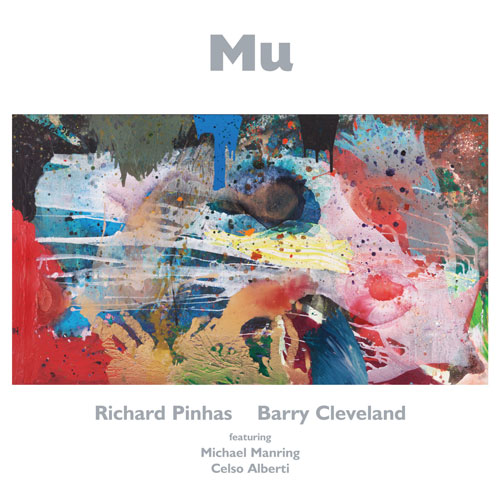


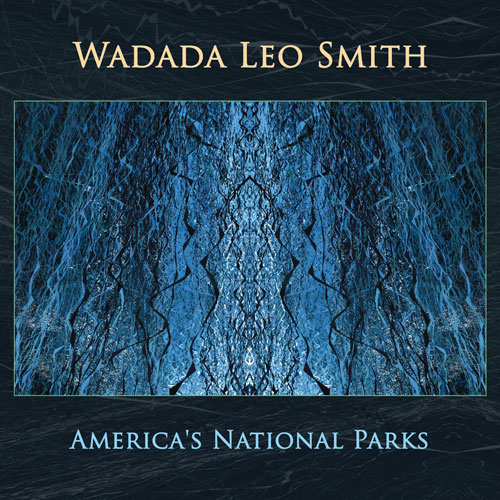
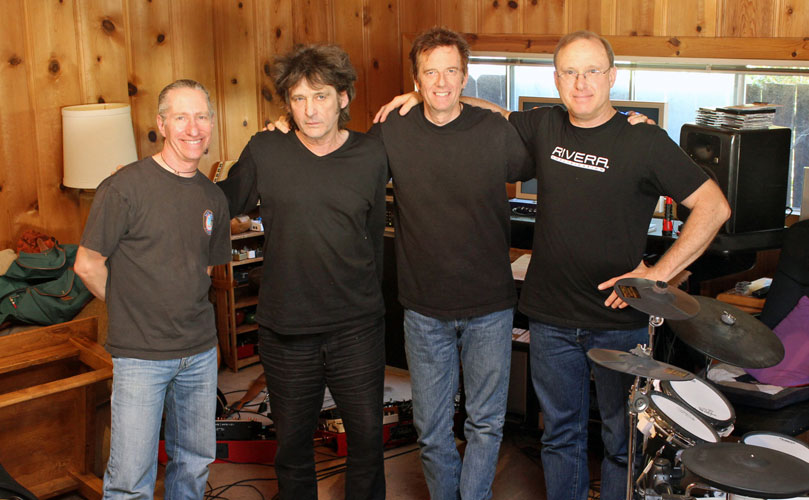
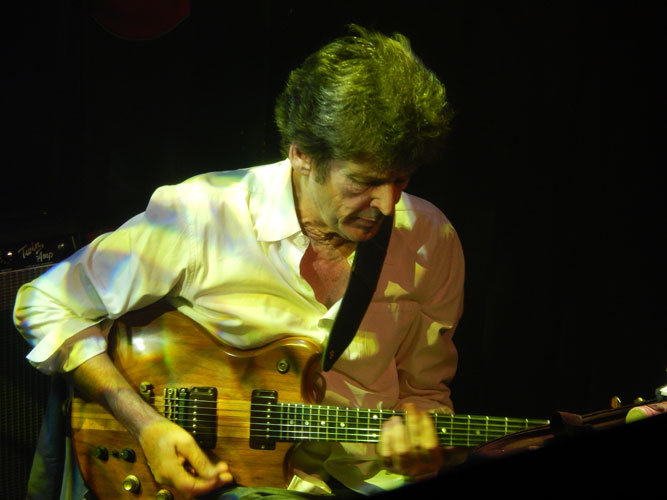
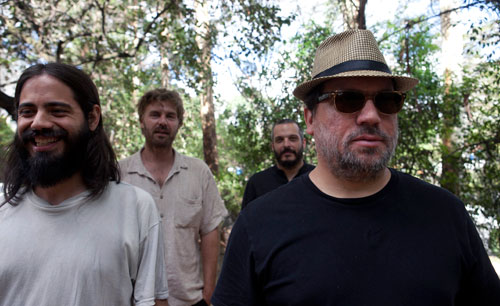
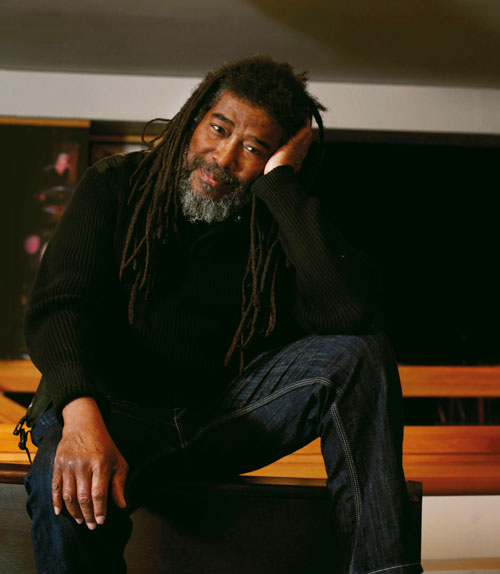
No comments:
Post a Comment